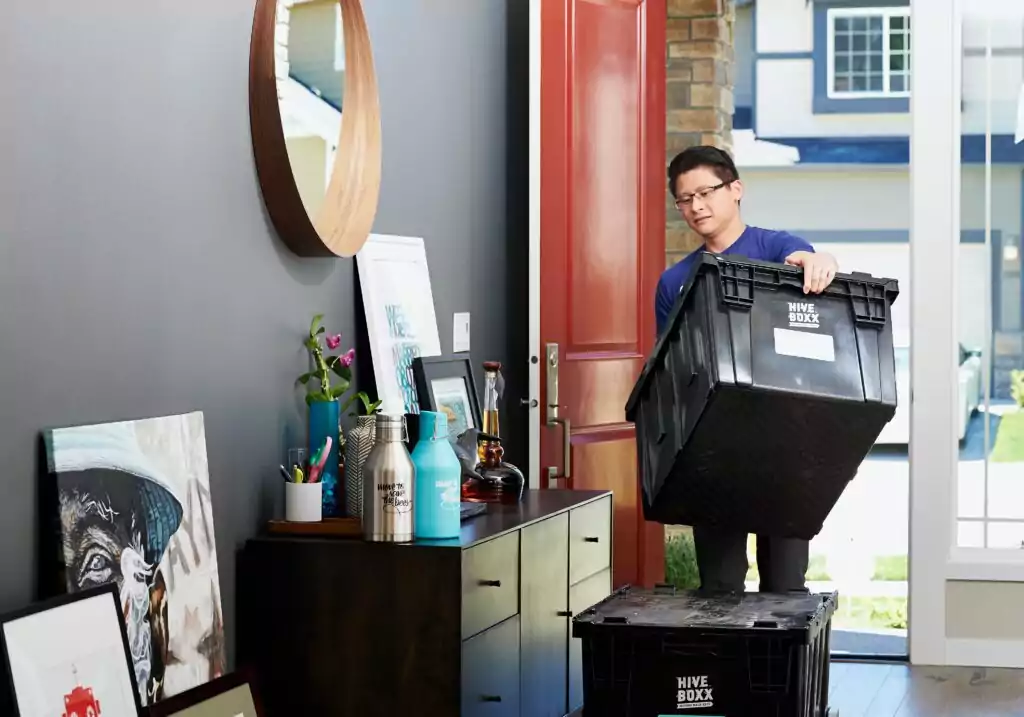Moving is stressful – physically, mentally, emotionally, and financially. The latter is especially true in Japan where a slew of hidden costs can quickly put a strain on your well thought out budget. To avoid or at least be aware of much you may have to set aside when you move in Japan, this article will list 5 of the biggest moving expenses you’ll encounter when moving in Japan. Alternatively, if you want a budget-friendly, relatively stress-free move, Village House is a real estate organization that offers low upfront apartment costs with no deposits, no renewal fees, no key money, and no handling fees.
Initial Move In Costs
Arguably, the biggest expense when you move in Japan will be the initial move in costs. Before you’re even handed the keys to your brand new apartment, you’ll have to be ready and willing to part with up to 5~6 months’ rent. Let’s break it down:
First month’s rent – this is standard for many countries in the world when renting a place
Deposit – again, this is fairly standard procedure and will be refunded upon moving out (minus any damage charges beyond the usual wear and tear and a mandatory cleaning fee)
Key money – possibly something unique in Japan, the concept of key money was introduced post-WWII to show gratitude to landlords for letting you rent their property during a housing shortage. It’s not refundable and can cost between 1~2 months’ rent
Monthly building management fees (Kanri fee)– may or may not be added to your rent. It’s a monthly cost to maintain the public facilities of your apartment building and can cost anywhere from ¥2,000~¥10,000 depending on the apartment building
Broker fees – some real estate companies tack on a kind of “service fee” that can cost up to a months’ rent for the tenant
Guarantor fees – in Japan, it’s common practice to have a guarantor who will cover any rent or damage costs if the tenant isn’t able to pay their rent or cancels their lease before the contract period is up. Many real estate organizations will refer the tenant to a guarantor company where there’ll be an initial fee of 50%~100% of the tenant’s monthly rent. On top of that, there is an annual renewal fee of ¥10,000
Fire insurance – most landlords and real estate organizations will require the tenant to purchase fire insurance, which can cost between ¥13,500~¥20,000 per 2 years
Key exchange fee – funny enough, in some cases, the tenant is required to pay for the keys and locks to be replaced and this can cost anywhere between ¥15,000~¥25,000
Contract renewal fee – known as koshin ryo in Japanese, this again is pretty standard practice in the Japanese real estate industry where tenants will have to pay up to a month’s rent to renew their lease after 2 years
Some of these fees may be negotiable so if you’re strapped for cash, try negotiating with the real estate agent or getting them to negotiate with the landlord on your behalf to see what costs can be eliminated.

Moving / Removals Company
Most Japanese real estate organizations require tenants to return the apartment to its original state upon moving out. This means that you can’t leave anything behind lest you’ll be charged for it. Thus, if you have furniture and various household appliances, you’ll most likely be hiring a moving or removals company to help you transfer the items from your old place to your new place.
Depending on whether you’re moving as a single person, a couple, or a family and how far your new place is from your old place, the price of hiring a moving or removals company varies. It’s estimated that for a single person with very minimal belongings, a moving company may cost anywhere between ¥20,000~¥60,000. For a family, this can increase up to ¥200,000 yen, depending on whether you tack on services like getting the moving company to pack up your stuff for you.
You can minimize these expenses by hiring a van or moving truck and roping in family and friends to help you pack and move.
Travel Expenses
This can be another pricey expense, especially if you’re moving to Japan from abroad. Plane tickets nowadays from one international destination to another can cost anywhere between ¥97,000~¥350,000 depending on where you’re flying from and what airline you choose. If you’re already in Japan and simply moving across the city or to a nearby prefecture, your travel costs will be lower. However, if you’re moving, say from the Kanto region down to the Kyushu area, your travel expenses will go up.
Cleaning Fee (And Potential Damage Costs)
Another quirk of the Japanese housing industry is that upon moving out, there’s a mandatory cleaning fee that tenants have to pay and it can cost up to one or even two months’ rent. At Village House, the mandatory cleaning fee is ¥1,120 per m/2 (tax included). You’ll have to factor this in to your moving budget so it won’t come as a surprise.
Be aware that your apartment will be subject to a “moving out inspection”, which again is standard practice in Japan and some other countries. Any damages that don’t fall under “wear and tear” will result in damage costs that may eat into your moving budget.

Furniture and Household Appliances
For those who are moving to Japan from abroad, you may be shocked to realize that a lot of rental properties are unfurnished – to the point where there isn’t even an A/C unit, light bulbs, or even a burner stove. If you are renting such a property, outfitting your apartment with all the necessities such a bed, desk and chair, kitchen appliances etc. can quickly become a costly expense. To minimize these costs, look for recycle shops (secondhand shops) in your local neighborhood or check out Facebook pages and Craigslist for listings where people who are leaving Japan are giving away their furniture and household appliances for free. All you need to do is arrange transport and pay for it.
Related articles:
- How Much Does Moving Out Usually Cost? 7 Tips to Reduce Move-Out Fees!
- Help! Which Moving Company Should I Choose?
- Procedures You Shouldn’t Forget After Moving!
- Recommended Cleaning Products From The 100 Yen Store
- How To Save Money When Moving



